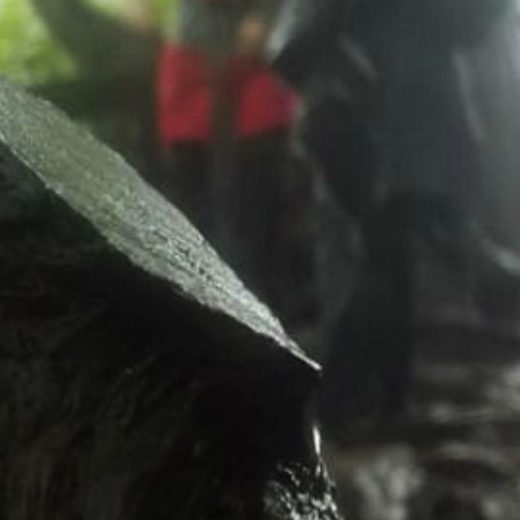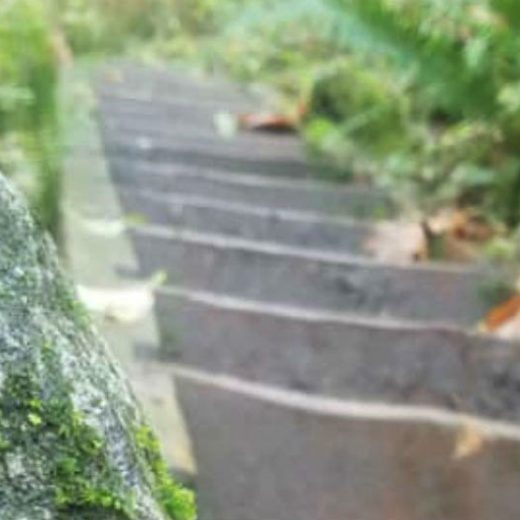
Introduction
We think of bread and water as the basics of survival — the very fundamentals of life. So these items are fittingly used throughout the Bible to represent the basics of spiritual life.
Several months ago I was reading the account of Moses meeting his future wife Zipporah. They met at a well, and Moses cleared the way for Zipporah to have access to the life-giving liquid. I began to think of other stories of women who were helped to gain access to one of these basics of survival.
Then it occurred to me that there was something deeper — something about our spiritual health and well-being in these stories. So I studied.
The Stories
In my study I looked at five stories: Rebekah, Rachael, Zipporah, Ruth, and the Samaratin women with whom Jesus spoke. Just in case it has been a while since you’ve read these stories, here are their brief summaries.
Genesis 24:10-21 Rebekah’s story is a bit different from the others. Abraham’s servant travels back to Abraham’s “home town” to find a bride for Issac. It is Rebekah’s enthusiastic offering to draw water for the servant’s camels that indicates to him that she was God’s choice for Issac.
Genesis 29:1-12 Rachel and the some of the other shepherds and shepherdesses had gathered at the well to water their flocks, but the men who roll away the stone are not there yet. Jacob rolls away the stone and gives water to Rachel’s sheep.
Exodus 2:14-21 Zipporah was the daughter of a priest of Midian, where Moses fled after killing the Egyptian. Moses assists Zipporah and her sisters to gain access to the well which was being blocked my some rude shepherds.
Ruth 2:2-17 Ruth, a Moabitess, accompanies her mother-in-law back to Judah after the death of both of their husbands. Ruth seeks to support them by gleaning in the fields. Boaz notices her in his field and instructs his servants to leave plenty for her to find.
John 4:5-15 The story of the Samaritan woman of Sychar is really the fulfillment of all the other stories. Jesus, weary from his journey, sits at the edge of the well and asks this woman for some water. She is surprised that he would ask a favor of her as he is a Jew and she a Samaritan. He offers her the Living Water that will satisfy her ultimate need.
The first four stories direct us to what we ultimately need, which is revealed in the last story.
Jesus.
Now, let’s look at these stories a little more closely.
Rachael and Zipporah
In these two stories, access to the necessary water is restricted. Rachael cannot gain access because of a stone and Zipporah is hindered by unkind men.
Many things and people may hinder us from access to God. Sometimes we even setup the obstacle ourselves. As much as we may want free access to God, we are not able to clear the way. We must rely on God’s way and timing.
He will not let us die of thirst.
When Abraham had to send Hagar and Ishmael away, Hagar though they would die of thirst, but God hadn’t forsaken them just because it was best for them to leave.
Then God opened her eyes, and she saw a well of water. And she went and filled the skin with water, and gave it to the lad to drink.
Genesis 21:19
If we will let Him, God will take care of the obstacles in our lives. We may even find that some of those people who seemed to be obstructing our way aren’t. They are trying to redirect us to the good water rather than let us drink from a polluted well.
Ruth
Although not about water, this story is also about access to God — more specifically, His word.
Bible study can seem an impossible task to some.
“Where do I begin?” “What if I make a mistake?” “I’m not smart enough.” These and others like them are all fears people have regarding Bible study, but Bible study is basically just as easy (and hard) as gleaning a field. All you have to do is reach down and pick up the grain, but in order to get enough you have to invest time.
Like Boaz, God will make the task as profitable (notice I did not say easy) as possible. Boaz had instructed his servants to purposefully let grain fall while they reaped, so that there would be more for Ruth to collect. So God knows our limits when we first begin studying His word, and He will make sure you are able to collect many helpful and beautiful truths as you study.
In the story of Ruth, she goes to Boaz and asks him to redeem her family’s possessions, which includes marrying her. At the end of the interview, Boaz sends her home with a sack of gain for which she did not work. Sometimes we read someone else thoughts about a verse or hear a sermon and gain much, and we did not have to do the Bible study (the work) to find it. But too many people want that to be how it always is. Rejoice when you gain such a windfall, but don’t “give up your day job.” Keep studying the Word for yourself.
Rebekah
The final story illustrates our response to receiving the blessing of the water and the grain — we give it away. Freely. Enthusiastically.
As soon as Abraham’s servant asked for Rebekah’s help, she set to work drawing the water. She was not the source of the water, but she had the pot and knew where the well was.
You may not think that you have much to offer people spiritually, but if you know Jesus as your Savior you have more than many. Most often what people really need is your “pot” — your personal experience with God. You don’t need to know what Paul said about circumcision or have Psalm 23 memorized to bring a blessing to someone. Generally what people want to know is “How’s that working for you?” They want to know that your life is better because of your connection with God.
You have a pot large enough to give at least one person a drink of water. You don’t have to be able to water your entire church congregation. If God asks you to do that, He’ll give you a bigger pot.
Conclusion
Women are central to each of these stories. God says over and over through the Old Testament that we are His bride. God seeks to care for us individually as lovingly as a husband cares for his wife.
So husbands ought to love their own wives as their own bodies; he who loves his wife loves himself. For no one ever hated his own flesh, but nourishes and cherishes it, just as the Lord does for the church.
Ephesians 5:28, 29
We can easily miss the extreme relational nature of Christianity. Some people make it about rules, some make it about freedom, but neither of these really make sense unless there is a relationship with Jesus. This is to be a close (abiding is the word used in many places) relationship — closer than any human relationship.
Like the woman os Sychar, we try to slake our thirst from human relationships. That was never their intended purpose. Human relationships were intended to help us through the encouragement of others to go to the true source of relief. Our intense thirst will only be satisfied by God and His Living Waters.
Blessed are those who hunger and thirst for righteousness for they shall be filled.
Matthew 5:6
Yet we cry many tears regarding our relationships because we are looking for relief and fail to fully find it in someone else. So we often try a different relationship with the same or similar results. When we abide with Him and are nourished by Him, He is able to fill our need and wipe away the tears of disappointment and hurt. Then like Rebekah we can enthusiastically offer this water to others who are parched.




